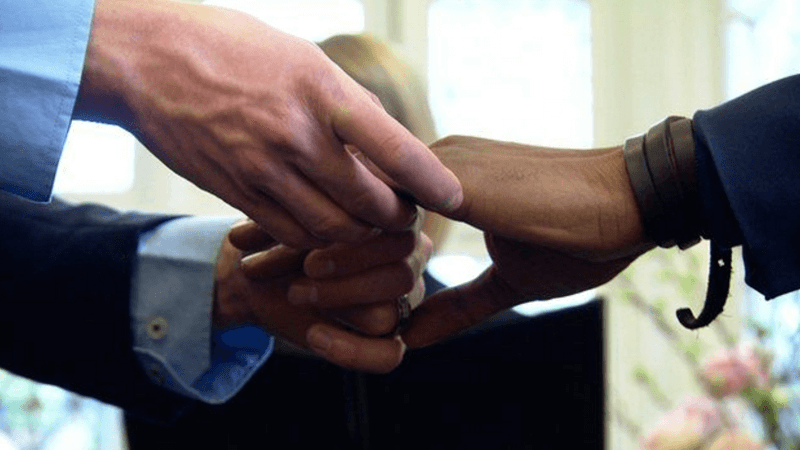Over two hundred same-sex weddings took place in British embassies and consulates in countries where it is illegal over the last year, it has emerged.
The bypassing of local law is in line with former Prime Minister David Cameron’s 2013 pledge to ‘export’ same-sex marriage abroad.
In countries where marriage is defined as being between one man and one woman, same-sex couples have been allowed to marry under British law – as long as one of the applicants is a UK citizen.
Exporting gay marriage
The Foreign and Commonwealth Office (FCO) has released data showing there had been 202 same-sex marriages and six civil partnerships between 1 July 2016 and 6 July 2017.
FCO buildings in Australia, Cambodia, China, Cyprus, Germany, Japan, Malta, Mozambique, the Philippines, Serbia, Venezuela and Vietnam were used for the ceremonies.
After the same-sex marriage Bill was passed in Britain in 2013, the Government’s foreign policy was also changed to allow for same-sex weddings to take place at consulates and embassies.
Australia
Earlier this year, the British High Commissioner to Australia was forced to deny that a redefinition of marriage was being subtly pushed on citizens.
Menna Rawlings told the BBC that wedding ceremonies for same-sex couples held at British consulates are simply a “celebration of our own values”.
But Lyle Shelton, Managing Director of the Australian Christian Lobby, said Australia should be allowed to make up its own mind. Shelton said: “Just because Britain has made a decision, doesn’t mean Australia has to follow suit.”
“We’re seeing the negative consequences of the decision that Britain has made in terms of the impacts on the rights and freedoms of other people in the UK, particularly people of faith, so I think it’s up to Australia to make its own decision and not to be swayed by what other nations might do”, he added.
Rainbow flag
Last year, Foreign Secretary Boris Johnson gave the go-ahead for foreign embassies to fly LGBT flags.
Previously only the flags of the United Kingdom, its overseas territories and the EU flag were to be displayed.

